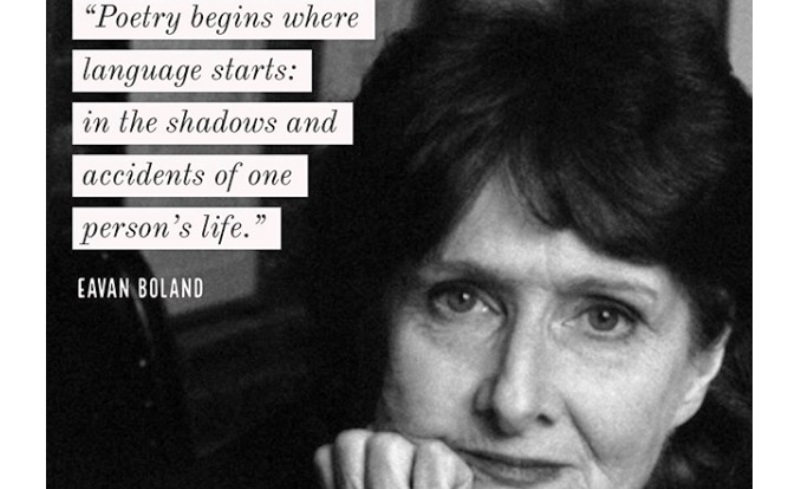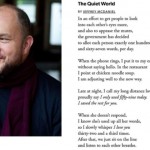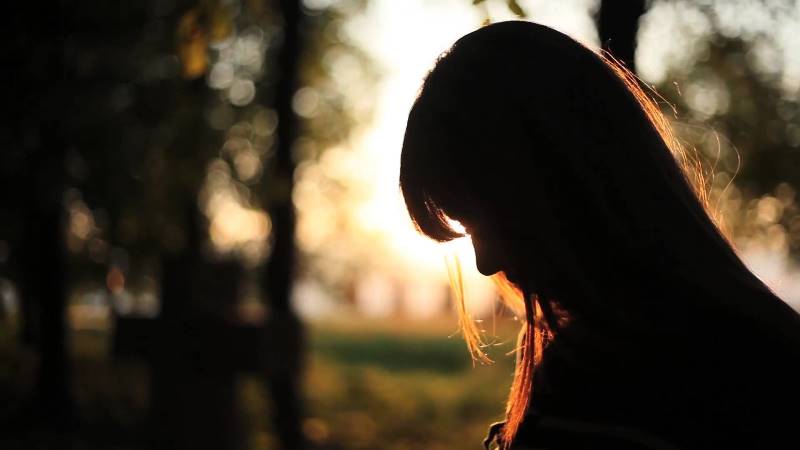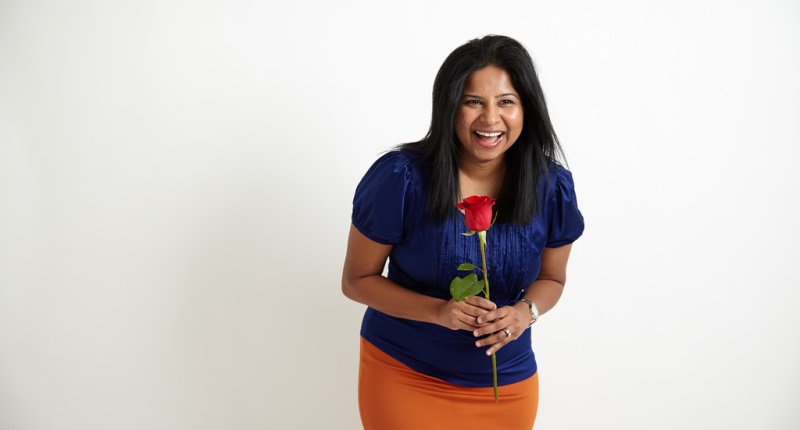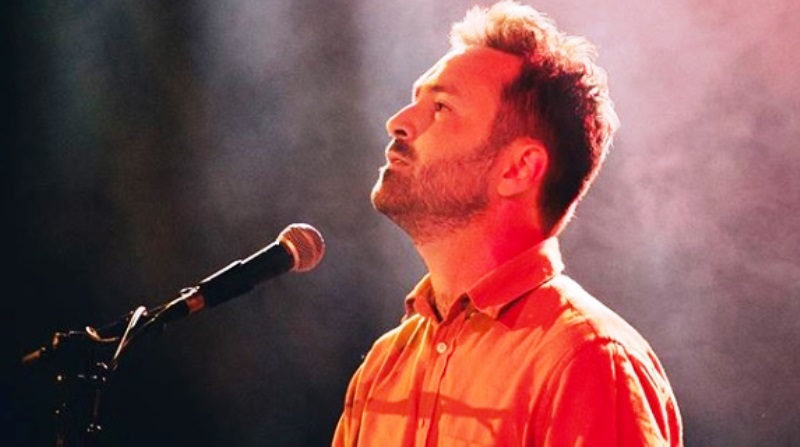Eavan Boland is an Irish poet and author. Currently, she teaches at the Stanford University. Her poetry is known for overthrowing orthodox constructions of womanhood. Her poems offer a fresh look on both Irish history as well as mythology.
Suggested read: “Live Frugally On Surpise”, Alice Walker And Her Beautifully Wise Poems
Best poems by Eavan Boland
Here are 4 of the best poems by Eavan Boland that everyone must read.
- And soul
My mother died one summer—
the wettest in the records of the state.
Crops rotted in the west.
Checked tablecloths dissolved in back gardens.
Empty deck chairs collected rain.
As I took my way to her
through traffic, through lilacs dripping blackly
behind houses
and on curbsides, to pay her
the last tribute of a daughter, I thought of something
I remembered
I heard once, that the body is, or is
said to be, almost all
water and as I turned southward, that ours is
a city of it,
one in which
every single day the elements begin
a journey towards each other that will never,
given our weather,
fail—
the ocean visible in the edges cut by it,
cloud color reaching into air,
the Liffey storing one and summoning the other,
salt greeting the lack of it at the North Wall and,
as if that wasn’t enough, all of it
ending up almost every evening
inside our speech—
coast canal ocean river stream and now
mother and I drove on and although
the mind is unreliable in grief, at
the next cloudburst it almost seemed
they could be shades of each other,
the way the body is
of every one of them and now
they were on the move again—fog into mist,
mist into sea spray and both into the oily glaze
that lay on the railings of
the house she was dying in
as I went inside.
- Becoming Anne Bradstreet
It happens again
As soon as I take down her book and open it.
I turn the page.
My skies rise higher and hang younger stars.
The ship’s rail freezes.
Mare Hibernicum leads to Anne Bradstreet’s coast.
A blackbird leaves her pine trees
And lands in my spruce trees.
I open my door on a Dublin street.
Her child/her words are staring up at me:
In better dress to trim thee was my mind,
But nought save home-spun cloth, i’ th’ house I find.
We say home truths
Because her words can be at home anywhere—
At the source, at the end and whenever
The book lies open and I am again
An Irish poet watching an English woman
Become an American poet.
Suggested read: “We Have Pain On Earth” Naomi Shihab Nye And Her Magnificent Poetry
- Domestic Violence
1.
It was winter, lunar, wet. At dusk
Pewter seedlings became moonlight orphans.
Pleased to meet you meat to please you
said the butcher’s sign in the window in the village.
Everything changed the year that we got married.
And after that we moved out to the suburbs.
How young we were, how ignorant, how ready
to think the only history was our own.
And there was a couple who quarreled into the night,
Their voices high, sharp:
nothing is ever entirely
right in the lives of those who love each other.
2.
In that season suddenly our island
Broke out its old sores for all to see.
We saw them too.
We stood there wondering how
the salt horizons and the Dublin hills,
the rivers, table mountains, Viking marshes
we thought we knew
had been made to shiver
into our ancient twelve by fifteen television
which gave them back as gray and grayer tears
and killings, killings, killings,
then moonlight-colored funerals:
nothing we said
not then, not later,
fathomed what it is
is wrong in the lives of those who hate each other.
3.
And if the provenance of memory is
only that—remember, not atone—
and if I can be safe in
the weak spring light in that kitchen, then
why is there another kitchen, spring light
always darkening in it and
a woman whispering to a man
over and over what else could we have done?
4.
We failed our moment or our moment failed us.
The times were grand in size and we were small.
Why do I write that
when I don’t believe it?
We lived our lives, were happy, stayed as one.
Children were born and raised here
and are gone,
including ours.
As for that couple did we ever
find out who they were
and did we want to?
I think we know. I think we always knew.
- The Journey
for Elizabeth Ryle
Immediately cries were heard. These were the loud wailing of infant souls weeping at the very entrance-way; never had they had their share of life’s sweetness for the dark day had stolen them from their mothers’ breasts and plunged them to a death before their time.
—Virgil, The Aeneid, Book VI
And then the dark fell and ‘there has never’
I said ‘been a poem to an antibiotic:
never a word to compare with the odes on
the flower of the raw sloe for fever
‘or the devious Africa-seeking tern
or the protein treasures of the sea-bed.
Depend on it, somewhere a poet is wasting
his sweet uncluttered metres on the obvious
‘emblem instead of the real thing.
Instead of sulpha we shall have hyssop dipped
in the wild blood of the unblemished lamb,
so every day the language gets less
‘for the task and we are less with the language.’
I finished speaking and the anger faded
and dark fell and the book beside me
lay open at the page Aphrodite
comforts Sappho in her love’s duress.
The poplars shifted their music in the garden,
a child startled in a dream,
my room was a mess—
the usual hardcovers, half-finished cups,
clothes piled up on an old chair—
and I was listening out but in my head was
a loosening and sweetening heaviness,
not sleep, but nearly sleep, not dreaming really
but as ready to believe and still
unfevered, calm and unsurprised
when she came and stood beside me
and I would have known her anywhere
and I would have gone with her anywhere
and she came wordlessly
and without a word I went with her
down down down without so much as
ever touching down but always, always
with a sense of mulch beneath us,
the way of stairs winding down to a river
and as we went on the light went on
failing and I looked sideways to be certain
it was she, misshapen, musical—
Sappho—the scholiast’s nightingale
and down we went, again down
until we came to a sudden rest
beside a river in what seemed to be
an oppressive suburb of the dawn.
My eyes got slowly used to the bad light.
At first I saw shadows, only shadows.
Then I could make out women and children
and, in the way they were, the grace of love.
‘Cholera, typhus, croup, diptheria’
she said, ‘in those days they racketed
in every backstreet and alley of old Europe.
Behold the children of the plague.’
Then to my horror I could see to each
nipple some had clipped a limpet shape—
suckling darknesses—while others had their arms
weighed down, making terrible pietàs.
She took my sleeve and said to me, ‘be careful.
Do not define these women by their work:
not as washerwomen trussed in dust and sweating,
muscling water into linen by the river’s edge
‘nor as court ladies brailled in silk
on wool and woven with an ivory unicorn
and hung, nor as laundresses tossing cotton,
brisking daylight with lavender and gossip.
‘But these are women who went out like you
when dusk became a dark sweet with leaves,
recovering the day, stooping, picking up
teddy bears and rag dolls and tricycles and buckets—
‘love’s archaeology—and they too like you
stood boot deep in flowers once in summer
or saw winter come in with a single magpie
in a caul of haws, a solo harlequin.’
I stood fixed. I could not reach or speak to them.
Between us was the melancholy river,
the dream water, the narcotic crossing
and they had passed over it, its cold persuasions.
I whispered, ‘let me be
let me at least be their witness,’ but she said
‘what you have seen is beyond speech,
beyond song, only not beyond love;
‘remember it, you will remember it’
and I heard her say but she was fading fast
as we emerged under the stars of heaven,
‘there are not many of us; you are dear
‘and stand beside me as my own daughter.
I have brought you here so you will know forever
the silences in which are our beginnings,
in which we have an origin like water,’
and the wind shifted and the window clasp
opened, banged and I woke up to find
the poetry books stacked higgledy piggledy,
my skirt spread out where I had laid it—
nothing was changed; nothing was more clear
but it was wet and the year was late.
The rain was grief in arrears; my children
slept the last dark out safely and I wept.
Suggested read: The Archipelago of Kisses And Other Poems By Jeffrey McDaniel
This is all we have on today’s post on the Best Poems By Eavan Boland. This is, however, not an exhaustive list, and if we have missed out on some of your favorites, then please feel free to add them in the comment section below.
Until next time!
Featured image source: Instagram
